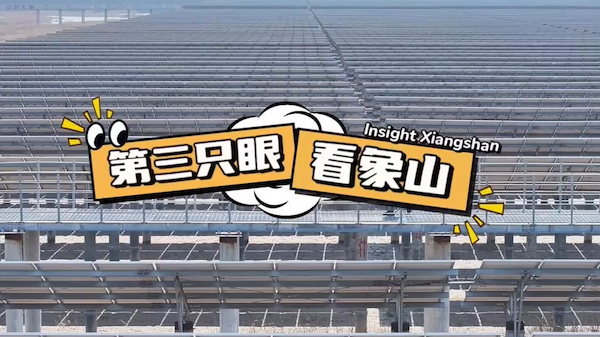Digital world narrows urban-rural gap
Financial services
In December, the Institute of Rural Development at the Chinese Academy of Social Sciences released the China County Digital Inclusive Financial Development Index Report.
It showed that in the past four years, the development of digital financial inclusion-the use of low-cost digital means of providing services to financially excluded and underserved populations-has seen a rapid upward trend in counties nationwide.
The development of county digital loans and digital credit is the most significant of those methods, and in 2020, the scale of digital credit services was more than eight times higher than in 2017.
In East China's Jiangxi province, the research team's members visited a grain producer in Yichun city and were surprised to find that their interviewee, Liu Yingfeng, uses a luxury Cadillac SUV to travel between home and her farmland.
The 36-year-old, who operates more than 100 hectares of farmland, is a former migrant worker. Her poor educational background caused many problems when she tried to land decent jobs in big cities, so in 2017, she decided to return to her home village in Yichun and grow cereal crops.
Lyu said he was impressed by Liu's appearance when they first met because the farmer was wearing a black one-piece dress and exquisite makeup, while her well-manicured nails were painted with pink polish.
"She was far from the traditional impression of what a farmer should be," Lyu said with a laugh.
Responding to Lyu's initial surprise, Liu asked him: "Why shouldn't a farmer look sophisticated and fashionable? We've already stepped into a new era!"
As cereal planting became increasingly automated, Liu expanded her farmland from 13.3 hectares to 133 hectares. The expansion was achieved via a special financial service known to local residents as a "satellite loan".
By using a smartphone location system, applicants can mark farmland available for rent and view satellite photos of it, allowing them to explore details such as area, crop types and even growing conditions.
Such information is an important criteria for banks to approve loans.
"This year, we estimate we will generate income of 800,000 yuan through our expanded farmland. Digitalization makes rural life much more convenient than ever before," Liu said.
"When I came back home to plant grain, some of my relatives mocked me. But now, they ask to join my farm and work for me. That's the magic of new technology."
Further expansion
Li Zhenhua, dean of the Ant Group Research Institute, said the trends in counties reflect the country's new moves to promote high-quality development, and such trends may expand further in the future.
In the survey, Li found that more teachers in rural areas are using modern technologies to teach students rather than relying on traditional chalkboards.
To further promote such digital services, the government aims to build a logistics center in every county and ensure that delivery services are available in all villages by 2025, according to a five-year plan released by several government departments last year.
"Once young people decide to develop their careers back in their hometowns and they see a promising future, they usually want to stay. This will reinvigorate local economies and also bring vitality to small cities," Li said.

 China welcomes global travelers with open arms
China welcomes global travelers with open arms  Badminton excitement builds in Ningbo city
Badminton excitement builds in Ningbo city  A green revolution in Ningbo's tidal flats
A green revolution in Ningbo's tidal flats 


